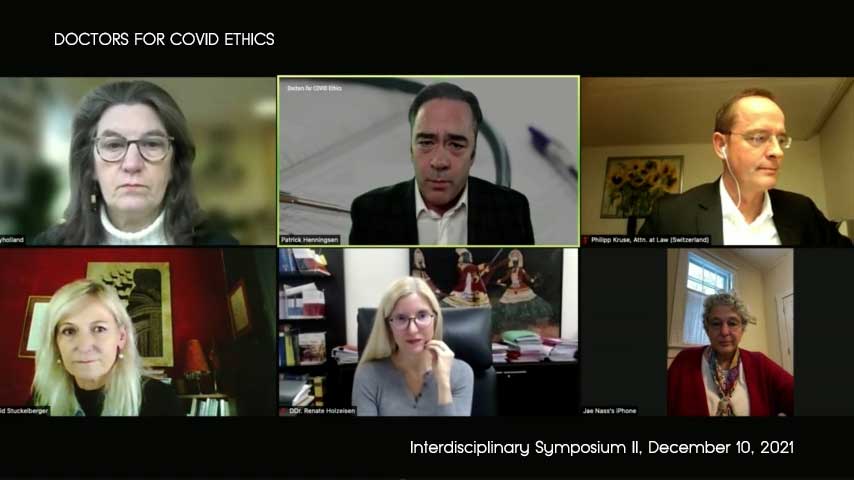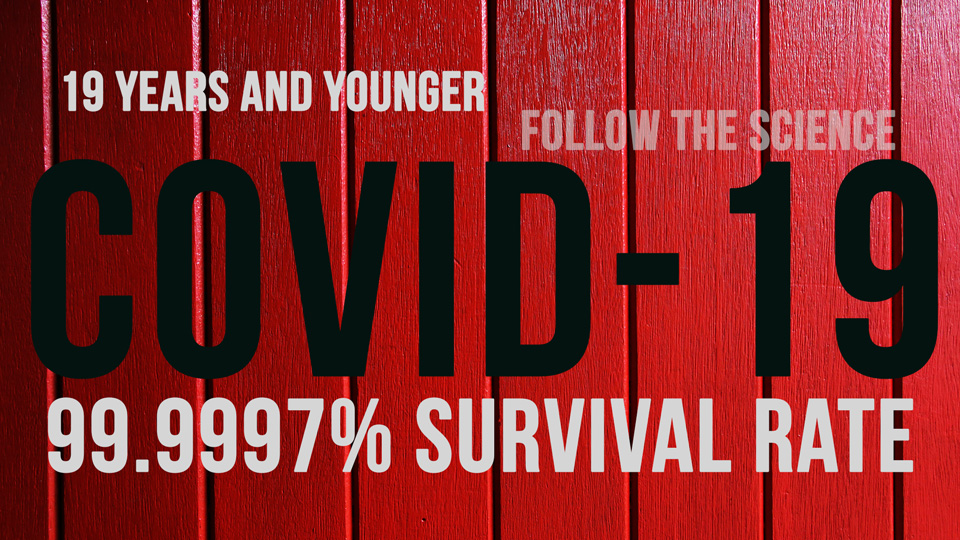Originally posted on theepochtimes.com by Megan Radshaw, July 13, 2023

A systematic review of 325 autopsies showing COVID-19 vaccination caused or significantly contributed to 74 percent of deaths was removed from The Lancet’s preprint SSRN server within 24 hours, adding to an increasing number of censored studies on the potential harms of COVID-19 vaccines.
The study, published July 5, examined all autopsies published in peer-reviewed literature to determine whether COVID-19 vaccination caused or contributed to the person’s death.
Researchers searched all published autopsy and necropsy reports related to COVID-19 vaccination through May 18, 2023, resulting in 678 studies. After implementing inclusion criteria, they chose 44 papers containing 325 autopsy cases and one necropsy case. A panel of three expert physicians independently reviewed each case to determine whether COVID-19 vaccination was a direct cause or significant factor in each death.
Of 325 autopsies reviewed, 240 deaths, or 74 percent, were independently adjudicated as “directly due to or significantly contributed to by COVID-19 vaccination.”
Findings showed the most affected organ system in COVID-19 vaccine-associated death was the cardiovascular system at 53 percent, followed by the hematological system at 17 percent, the respiratory system at 8 percent, and multiple organ systems at 7 percent. Three or more organ systems were affected in 21 cases. The mean time from vaccination to death was 14.3 days—with most deaths occurring within a week of the last vaccine dose.
The study results suggest a high likelihood of a causal link between COVID-19 vaccines and deaths in most cases. Yet, the government’s narrative is still that people do not die after COVID-19 vaccination, lead author Dr. Peter McCullough, a practicing internist, cardiologist, and epidemiologist, said in an interview on EpochTV’s “American Thought Leaders: Now.” “The striking cases were people who were perfectly healthy and had no other medical problems. The only new thing in their life was the vaccine, and they died with an obvious syndrome like a blood clot or heart damage—myocarditis.”
Within 24 hours, the study was removed and replaced with the following notice:
“This preprint has been removed by Preprints with the Lancet because the study’s conclusions are not supported by the study methodology.”
According to Dr. McCullough, the authors were not given an explanation for how their conclusions failed to meet the study methodology.
In an email to The Epoch Times, co-author Dr. Harvey Risch, a professor emeritus and senior research scientist in epidemiology at Yale, said he believes the paper was censored by The Lancet’s publisher, Elsevier, at the behest of the Trusted New Initiative (TNI), or a derivative organization of the TNI, based on the “study results providing strong evidence that some COVID-19 vaccine injections can have severe adverse effects leading to death.”
“This is my impression, given that the paper was removed at its preprint stage, before scientific peer review, and without any other professional scientific involvement in the censorship decision,” Risch added.
The Trusted News Initiative is an industry collaboration of major news and global tech organizations whose stated mission is to combat the spread of harmful vaccine disinformation.
TNI partners alert each other to disinformation that poses an “immediate threat to life so content can be reviewed promptly by platforms, whilst publishers ensure they don’t unwittingly republish dangerous falsehoods.”
Dr. McCullough said the project was approved through the University of Michigan’s School of Public Health, and the team used a standard scientific evaluation methodology known as the Preferred Reporting Items for Systematic Reviews and Meta-Analyses, to search through hundreds of papers to identify 44 that met the criteria before submitting them for adjudication.
Although the study didn’t go through a formal review, The Lancet accepted it for publication on its preprint server. To be published on SSRN, a paper must undergo “usual SSRN checks” and a “Lancet-specific check for appropriateness and transparency,” which the paper undoubtedly passed.
Dr. McCullough has broadly published more than 1,000 publications and 660 citations on a range of topics within the National Library of Medicine and is familiar with the process and standards that must be met.
The study’s co-authors, including top pathologist Dr. Roger Hodkinson, former chairman of the Royal College of Physicians and Surgeons of Canada’s examination committee in pathology, Dr. Paul Alexander, former Trump administration official at the U.S. Department of Health and Human Services during the COVID-19 pandemic, and Dr. Risch, are all accomplished in their fields.
Dr. McCullough said that before removal, the study was experiencing “hundreds of reviews per minute” and is now on the Zenodo preprint server and currently under review at another high-level journal.
“When it comes to the vaccines, papers get special attention. I think because there are individuals who don’t want to have a fair presentation of data when it comes to safety,” said Dr. McCullough. “This was simply what happened when someone died after a vaccine and the family, or the doctor, or the medical examiner requested an autopsy.”
Medical Journals Censor to Control Vaccine Hesitancy
Just as the U.S. government coordinated with social media companies to suppress truthful information about COVID-19 vaccines that may cause vaccine hesitancy, medical journals have censored numerous studies by accomplished experts about the potential harms of COVID-19 vaccination, often without explanation.
Elsevier, in October 2021, censored a different study by Dr. McCullough and molecular biologist Dr. Jessica Rose days after it was published in Current Problems in Cardiology. The study analyzed data from the Vaccine Adverse Event Reporting System (VAERS) and found myocarditis spiked in teenagers after COVID-19 vaccination.
The retraction notice said the publisher temporarily removed the paper, and a “replacement will appear as soon as possible in which the reason for the removal of the article will be specified, or the article will be reinstated.”
In an email to Dr. McCullough, Elsevier said the journal was unwilling to publish the paper—after it had already published it. A reason was not provided, and the article was never reinstated. The National Library of Medicine’s website states the article was withdrawn at the ”request of the author(s) and/or editor.”
A paper reanalyzing earlier sponsored research (pdf) by the Centers for Disease Control and Prevention (CDC) showing mRNA COVID-19 vaccines were safe for pregnant women found spontaneous abortions were 7 to 8 times higher than the authors reported. The researchers concluded that key policy decisions were made based on questionable and unreliable data. After immense pressure, the researchers retracted their reanalysis of the study.
A peer-reviewed paper published in June 2021 in Vaccines questioning the safety of COVID-19 vaccination and vaccine policy was retracted after the journal experienced pressure to pull the study and numerous editorial board members threatened to resign. The study’s authors claimed that for “three deaths prevented by [COVID-19] vaccination, we have to accept two inflicted by vaccination.”
The disgruntled editors feared the paper, which had over 425,000 views prior to retraction, would feed “antivaccine conspiracy theories” and be used by people to claim COVID-19 vaccines weren’t safe. The journal promptly retracted the article without providing specifics on how the paper failed in its methodology and established internal review procedures to ensure similar papers would not be published.
An academic study published in January 2023 in BMC Infectious Diseases was retracted after survey data estimated COVID-19 vaccine fatalities were as high as 278,000—showing a major discrepancy with the CDC’s VAERS database. The editors retracted the study over the “validity of the conclusions drawn after publication,” and a post-publication peer review concluded the “methodology was inappropriate as it does not prove causal inference of mortality, and limitations of the study were not adequately described.”
A paper in Toxicology Reports, published by Elsevier in 2021 questioning why children were being vaccinated against COVID-19, was retracted by the founding editor on the basis of “clear evidence that the findings are unreliable” and the focus of the paper was on a “critically important public health issue” and exhibited bias. At the time the study was published, U.S. regulatory agencies were in the process of authorizing experimental COVID-19 vaccines for children.
Dr. Vinay Prasad, professor of epidemiology and biostatistics at the University of California and author of more than 450 academic articles, wrote there should be more discussion about vaccines, but public debate on side effects is being censored. In a 2022 article, Prasad said censors are unaccountable and are as fallible as those they are trying to censor.
“This is especially true in science, where, as history shows us, consensus views can turn out to be false, while controversial or heretical ideas can be vindicated.”




